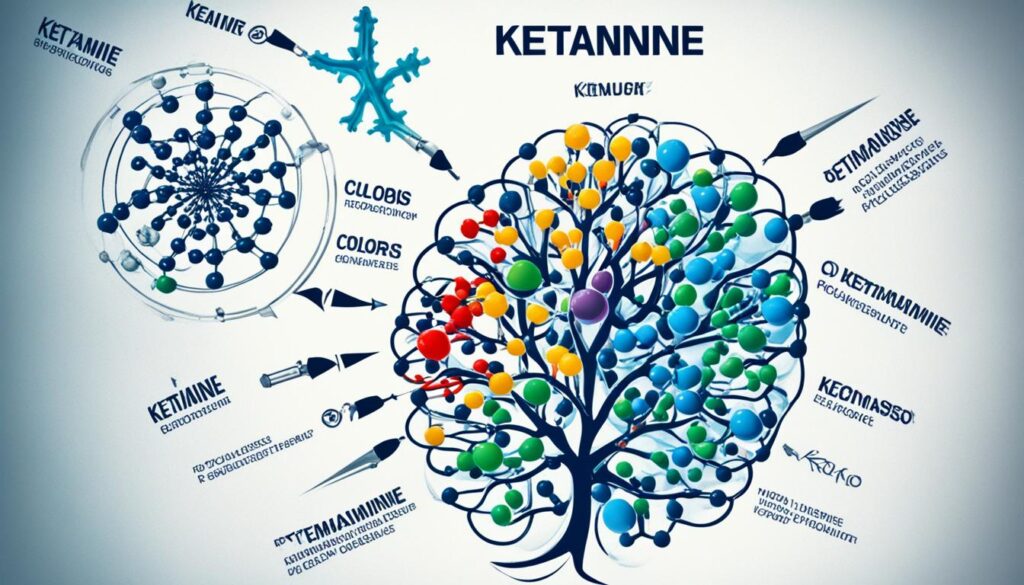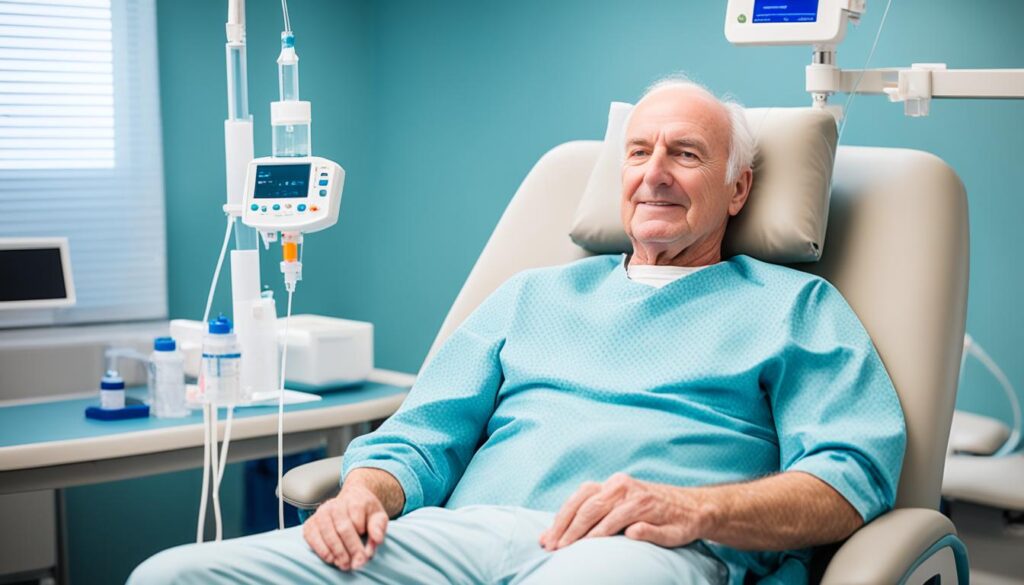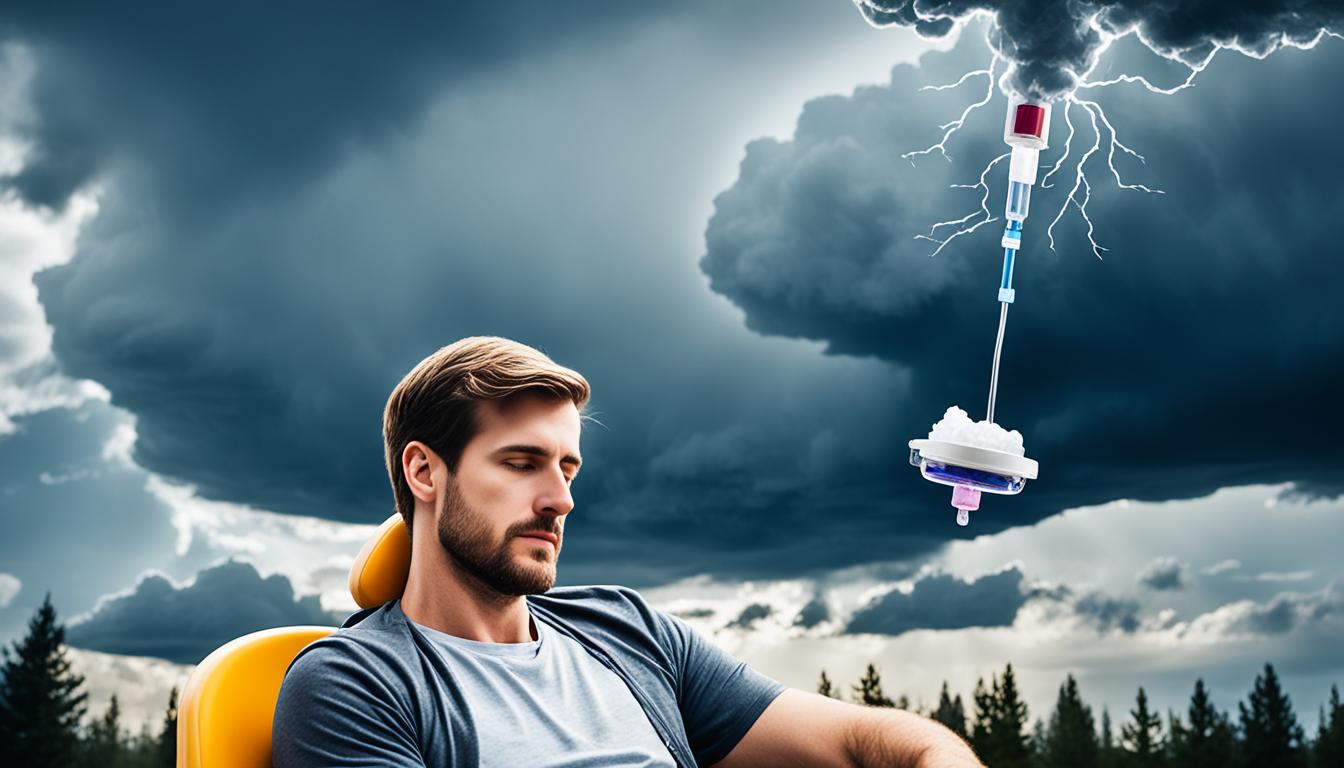Ketamine therapy for mental health shines as a beacon of hope, especially for those with ketamine bipolar psychosis. Understanding the complexities of bipolar disorder and ketamine treatment is essential. This is true if you’re considering the potential of ketamine infusion therapy for bipolar with psychosis. While ketamine for bipolar depression has earned praise through ketamine bipolar success stories, it’s important to also consider potential issues. This includes ketamine for bipolar side effects and questions about how long does ketamine psychosis last.
The rise of ketamine infusion therapy bipolar with psychosis provides a new option for those struggling with mood and psychotic symptoms. By examining both clinical and patient experiences, ketamine therapy for bipolar 2 emerges as a promising but cautious treatment. Making an informed choice about ketamine bipolar treatment requires understanding ketamine bipolar clinical trials and the wide range of ketamine infusions for psychiatric disorders.
If you’re dealing with mania, you might wonder if ketamine treatment for bipolar disorder is right for you. Consider this: ketamine for psychosis may offer relief you’ve been seeking. However, it could also present challenges with ketamine for bipolar mania that require a careful approach. We aim to clarify the benefits and complexities of ketamine bipolar treatment.
Key Takeaways
- Ketamine’s rapid mood improvement may be a breakthrough for those with ketamine bipolar depression.
- Understanding the risks and potential side effects of ketamine is paramount before considering treatment.
- Ketamine’s impact on psychotic symptoms could be a game-changer in managing bipolar with psychosis.
- The outcomes of current ketamine bipolar clinical trials could steer future psychosis treatment with ketamine.
- Each patient’s experience with ketamine infusion for psychosis may vary, highlighting the importance of personalized care.
- An open dialogue with healthcare professionals can aid your decision-making regarding ketamine therapy for bipolar 2.
- Diligent consideration of ketamine for bipolar reviews can offer insights into real experiences with the treatment.
Understanding Ketamine Bipolar Psychosis
Navigating bipolar disorder, especially when psychosis is also present, can be tough. The usual treatments might not always help. Ketamine treatment for bipolar depression shows promise for those dealing with both issues. To understand this treatment’s potential, getting to know bipolar disorder and psychosis is key.
The Nature of Bipolar Disorder and Psychosis
Bipolar disorder causes mood swings from depression to mania. When psychosis symptoms like hallucinations or delusions appear, it gets even harder. Episodes of bipolar disorder and psychosis can really change how a person sees reality, making finding effective treatments crucial.
Ketamine’s Role in Treating Bipolar Depression
Ketamine offers new hope. It’s not just an anesthetic but also fights depression in bipolar disorder quickly. Its role in treating bipolar depression is vital. Studies show it helps even when other treatments fail, improving mood.
How Ketamine Impacts Psychotic Symptoms
While ketamine helps with depression, its effect on psychotic symptoms is still being explored. How it affects these symptoms is key. Managing both depression and psychosis carefully is important.
| Consideration | Impact on Bipolar Depression | Impact on Psychotic Symptoms |
|---|---|---|
| Speed of Symptomatic Relief | Rapid improvement, often within hours | Variable, more research needed |
| Long-term Efficacy | Potential for sustained mood benefits | Studies suggest potential for positive effects |
| Risk of Dependency | Managed with controlled, clinical use | Control protocols required to minimize risk |
Knowing this helps you talk to your doctor about ketamine as a treatment option. You’ll be aware of its potential benefits and the need for careful medical watch.
Ketamine Bipolar Psychosis

Exploring ketamine bipolar psychosis reveals the deep challenges people face. This condition stretches beyond what regular treatments can handle. Ketamine shines as a hopeful option for tackling the unique aspects of this mental health problem.
Studies show ketamine can quickly ease symptoms of bipolar psychosis. It works faster than many treatments, providing swift help. This quick action is vital during intense episodes of psychosis. Yet, it’s important to understand the risks and how best to use it.
| Ketamine’s Therapeutic Effects | Challenges & Considerations |
|---|---|
| Rapid reduction in depressive symptoms | Potential for ketamine misuse or abuse |
| Alleviation of acute psychotic episodes | Need for controlled administration by healthcare professionals |
| Possibility of improving quality of life | Assessment of long-term effects still underway |
Ketamine for bipolar psychosis draws attention, especially from those yet to find relief. The medical field continues to research its potential in mental health care.
Consulting healthcare professionals is crucial before trying ketamine therapy. They guide you, weighing benefits and risks. This ensures ketamine is a safe step towards better health.
Examining the Risks of Ketamine Therapy
When looking at ketamine therapy for bipolar disorder, it’s critical to understand the whole picture. This includes the potential side effects of ketamine, the risk of dissociation and dependency, and how it works with other meds for bipolar disorder. Knowing all this ensures the treatment is both safe and effective.
Potential Side Effects of Ketamine
The quick mood boost from ketamine can seem appealing for those with bipolar disorder. But it’s important to consider the negative effects it might have. These effects can vary from physical to psychological issues, requiring close attention from both patients and doctors.
The Risk of Dissociation and Dependency

Dissociation, or feeling detached from oneself or reality, is a key side effect of ketamine. While it may help some, it could also lead to dependency, especially if not used correctly in a clinical setting.
Interaction with Other Bipolar Disorder Medications
Those with bipolar disorder usually take multiple meds. It’s vital to know how ketamine affects other bipolar disorder treatments. This knowledge is essential for creating a treatment plan that works for each individual.
| Medication Category | Common Uses | Potential Interaction with Ketamine |
|---|---|---|
| Mood Stabilizers | To manage mood swings | May alter the effectiveness of ketamine |
| Antipsychotics | To reduce symptoms of psychosis | Increased risk of side effects |
| Antidepressants | To alleviate depressive episodes | Potential for synergistic or antagonistic effects |
| Anti-Anxiety Medications | To reduce anxiety symptoms associated with bipolar disorder | May exacerbate sedative properties of ketamine |
When thinking about ketamine therapy for bipolar with psychosis, being well-informed is crucial. Talking openly with your doctor and carefully monitoring any possible side effects, risks, and drug interactions can make the treatment safer and more effective.
Ketamine Infusion Therapy: Procedure and Expectations
When looking into ketamine infusion therapy for bipolar disorder with psychosis, getting to know the ketamine infusion procedure is key. Having clear expectations of ketamine infusion therapy will help you make a confident choice about your mental health care.

Ketamine infusion therapy is done through IV treatments under a doctor’s watch. They first check your health and medical history. This ensures the therapy is safe for you.
After they see you’re a good fit, the ketamine infusion procedure starts in a peaceful clinical setting. This helps keep you calm and less anxious.
- A needle goes into your arm for the ketamine to go through.
- The infusion takes about 40 to 60 minutes. The dose depends on how you react.
- Doctors will keep an eye on your vital signs during the treatment.
- Some might feel a bit disconnected during the treatment, but it doesn’t last long.
After the infusion, you’ll stay in the clinic for a bit to make sure you’re okay. It’s important to have someone drive you home. You shouldn’t drive for the day.
Outcomes can vary for everyone. Some see changes after one treatment. Yet, many need more infusions for the best results. Talk often with your doctor to fine-tune your treatment as needed.
Remember, ketamine infusion therapy can really help some people. But, it’s just one part of a bigger treatment plan that may include other medicines and therapy.
Knowing about the procedure and what to expect helps you decide if ketamine infusion therapy is right for you.
Benefits of Ketamine Treatment for Bipolar Disorder
The rise of ketamine as a treatment brings hope to many with bipolar disorder. People have found a new possibility for relief with its rapid antidepressant effects. These effects are especially helpful in cases that don’t respond to other treatments.

Success Stories and Positive Outcomes
Many with bipolar disorder struggle to find effective treatments. Yet, ketamine bipolar success stories show remarkable improvements. Stories often share a decrease in depressive symptoms and a brighter outlook on life. They tell of overcoming the constant ups and downs.
Ketamine’s Rapid Antidepressant Effects
Ketamine stands out because it works fast. Traditional antidepressants take weeks to start working. But ketamine can bring relief in hours or days. This makes it crucial for urgent situations.
Improvement of Treatment-Resistant Cases
Often, bipolar disorder doesn’t get better with common treatments. Ketamine, however, has been a game-changer. It helps even those who haven’t improved with other treatments. Ketamine offers a chance at stability and health that some thought they’d never see.
Conclusion
Ketamine therapy has emerged as a new hope for those battling bipolar disorder with psychosis. It can quickly stabilize moods and lessen the symptoms of bipolar psychosis. However, it’s important to know that ketamine therapy also carries risks and side effects.
Choosing ketamine for bipolar disorder should be a careful decision. Patients and doctors must talk deeply about the benefits and drawbacks. They should also consider the patient’s medical history to decide if ketamine is right. For those who haven’t found relief with other treatments, ketamine might offer a new hope.
The world of psychiatric treatment is always changing, and ketamine is a significant new development. It might be part of your path to better mental health. But making informed choices is key. Working closely with your doctors, and keeping up with research and clinical insights, will help you find the best way forward.




